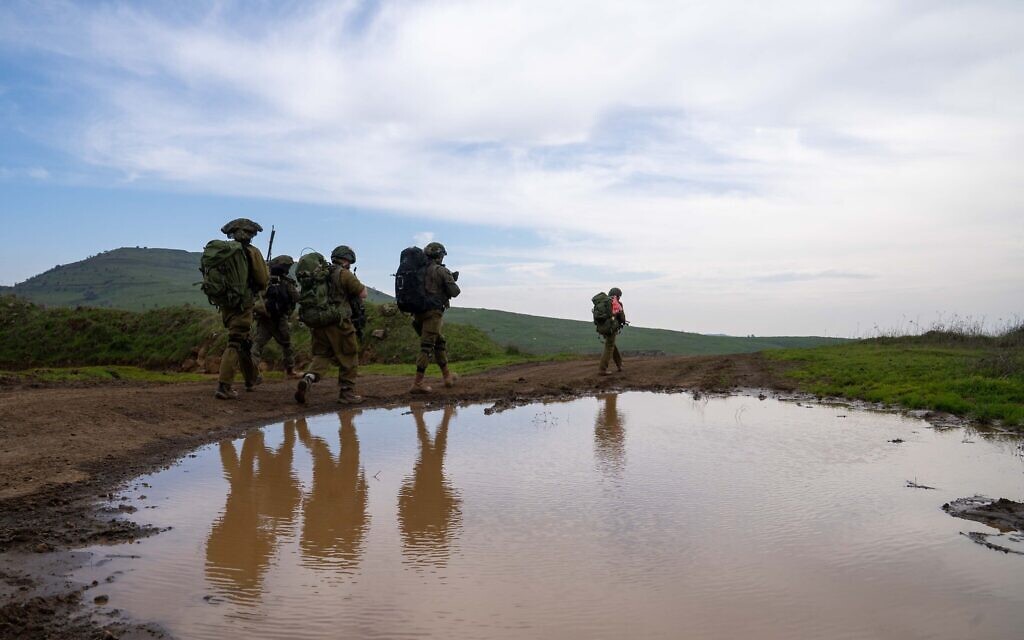Israeli Defence Minister Yoav Gallant has announced a “new phase” in Israel’s nearly year-long war of attrition with Hezbollah. It could well lead to a full-scale war with Hezbollah and possibly trigger a regional conflagration involving the United States, Iran, the Houthis in Yemen and pro-Iranian militias in Iraq.
In short, a significant escalation of Israel’s conflict with Hezbollah could be a game changer that bogs down Israel in a seekingly endless war and completely destabilizes the Middle East.
On September 18, Gallant said that “the center of gravity is moving north, meaning that we are allocating forces, resources and energy for the northern arena.” This, of course, was a reference to the area encompassing northern Israel and southern Lebanon.
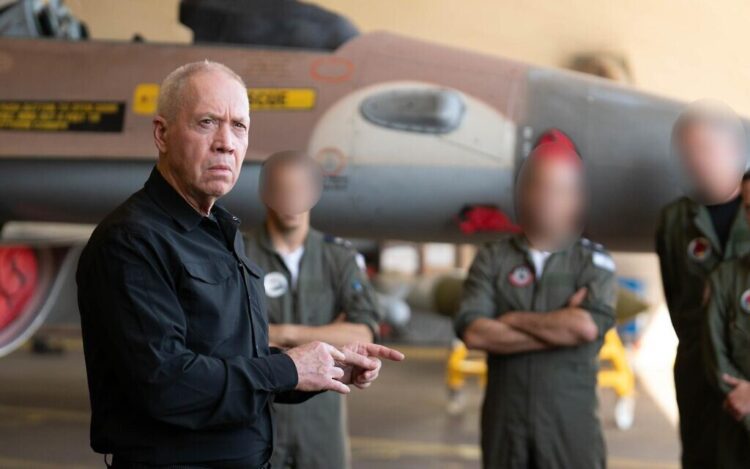
Gallant issued his ominous comments after Lebanon and Syria were convulsed by two unprecedented waves of explosions this week.
Thousands of remotely-controlled pagers and walkie-talkies, purchased by Hezbollah in Taiwan and Japan in recent months, suddenly erupted in flames on sidewalks and in shops, markets, offices and homes in a succession of deadly explosions. The blasts killed 37 members of Hezbollah and injured nearly 3,000 civilians, including Iran’s ambassador to Lebanon, Mojtaba Amani.
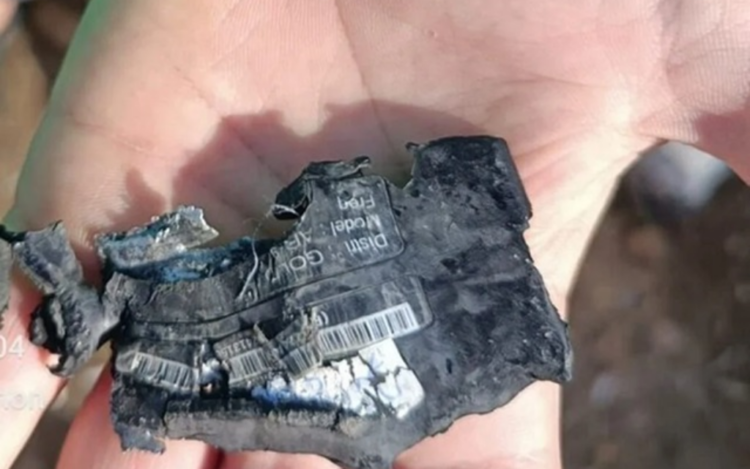
The weak and ineffectual Lebanese government, which exercises no authority over Hezbollah and is partly to blame for the current situation, blamed Israel for the “criminal aggression” and denounced it as a “serious violation of Lebanese sovereignty.”
Iran, Hezbollah’s patron, Israel’s deadliest foe and an instigator of Middle East tensions, condemned the explosions as “mass murder.” The commander of Iran’s Islamic Revolutionary Guards Corps, Hossein Salami, said that Israel would face “a crushing response from the axis of resistance,” the regional proxies of the Islamic fundamentalist Iranian regime.
Israel neither claimed nor denied responsibility for the explosions, which shocked and rattled Lebanon, stunned and humiliated Hezbollah, and appeared to compromise Hezbollah’s communications system.
The Mossad, the Israeli external intelligence agency, was blamed for the explosions, which marked a considerable escalation of Israel’s armed struggle with Hezbollah, its strongest non-state enemy.
In a televised speech on September 19, Hezbollah’s leader, Hassan Nasrallah, lambasted Israel’s electronic warfare campaign as a “declaration of war” that had crossed all “red lines.” He acknowledged that Hezbollah had suffered a “major and unprecedented” blow, and vowed that Hezbollah would recover and continue fighting until the Israel-Hamas war ends. “We will not fall, and we will come out stronger. We are preparing to face even worse attacks.”
In what can only be seen as an archly aggressive move, Nasrallah said that Hezbollah would not allow Israelis to go back to their homes near the Lebanese border. As he put it, “The goal of the resistance is to prevent the enemy from realizing its goals. Its latest objective is to return settlers to their homes in the north of occupied Palestine. Let me tell the Israeli government, the Israeli army and the Israeli people: You will not manage … You can do what you want, you will not manage.”
“The only solution is to halt the aggression against the people of Gaza,” he added. “No military escalation, no killings, no total war will return your settlers to the border area. You know it.”
As he spoke, Israeli jets broke the sound barrier over Beirut, shaking buildings in a show of force and intimidation.
Israel and Hezbollah clashed in tit-for-tat exchanges just hours before Narallah took to the airwaves. Hezbollah launched drones and anti-tank missiles at the Galilee, killing two soldiers, injuring eight civilians and igniting field fires.
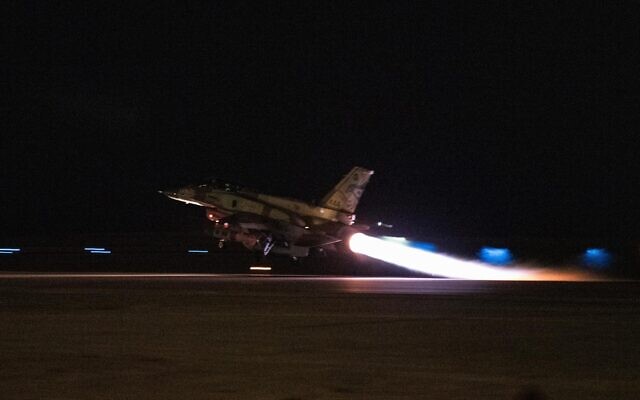
The Israeli Air Force bombed Hezbollah infrastructure sites, a weapons storage facility and missile launchers in its most intense raids since Hezbollah started bombarding Israel last October in a show of solidarity with Hamas.
As these events unfolded, Israeli authorities disclosed that Hezbollah attempted to assassinate Moshe Ya’alon, the former defence minister and ex-chief of staff of the armed forces, in a bombing attack in Tel Aviv’s Yarkon Park last September. Two Israeli Arabs suspects were detained and another six were arrested in the following days.
The uptick in tensions has developed gradually.
Two months ago, following a Hezbollah drone strike that killed a dozen Druze school children in a playground in the village of Majdal Shams on the Golan Heights, Israel assassinated Hezbollah’s most senior commander, Fuad Shukr, in Beirut. Vowing vengeance, Hezbollah launched about 300 rockets into Israel on August 25 after Israeli aircraft destroyed hundreds, if not thousands, of Hezbollah rocket launchers in a preemptive strike in southern Lebanon.
On September 14, Prime Minister Benjamin Netanyahu warned that Israel faced a “large-scale confrontation” with Hezbollah. Netanyahu’s remark prompted Hezbollah’s deputy leader, Naim Qassem, to warn that it was ready, if necessary, for an all-out war with Israel.
Two days later, following a meeting with U.S. envoy Amos Hochstein, Gallant said that “military action” by Israel was “the only way” to facilitate the return of some 60,000 displaced Israelis from northern Israel. Netanyahu said that Israel would do “whatever is necessary to return the residents securely to their homes.”
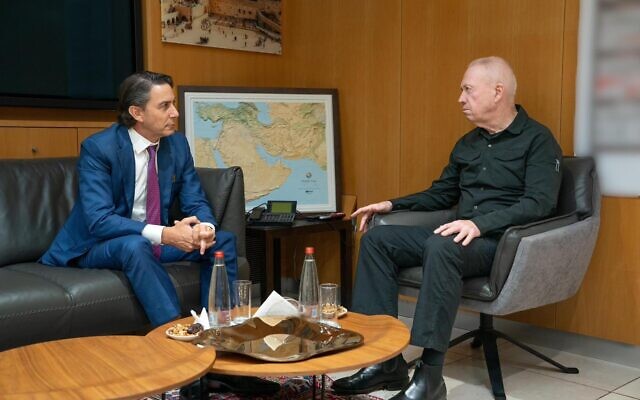
Fearing that Hezbollah would invade the Galilee in a manner similar to Hamas’ invasion of southern Israel on October 7, the Israeli government evacuated them from an area five kilometres from the border last October.
In Lebanon, 150,000 people have been driven from their homes near the Israeli border.
On September 17, in an unmistakable sign of the importance Israel attaches to the safe return of its northern residents, the Israeli cabinet announced that this objective is now an official goal of the Gaza war. As Netanyahu said, “We (will) return the residents of the north securely to their homes, and that is exactly what we will do.”
Israel’s three other war objectives are the destruction of Hamas’ military capabilities, the elimination of its ability to govern and control Gaza, and the return of Israeli and foreign hostages held by Hamas in its tunnel network.
Israel has threatened to launch a land invasion of southern Lebanon to push Hezbollah north of the Litani River. Under the terms of United Nations resolution 1701, Hezbollah is obliged to withdraw to this line. American and French diplomats have attempted to resolve this problem by diplomatic means, but all their efforts have failed because Hezbollah refuses to abide by this resolution, which ended Israel’s 2006 war with Hezbollah.
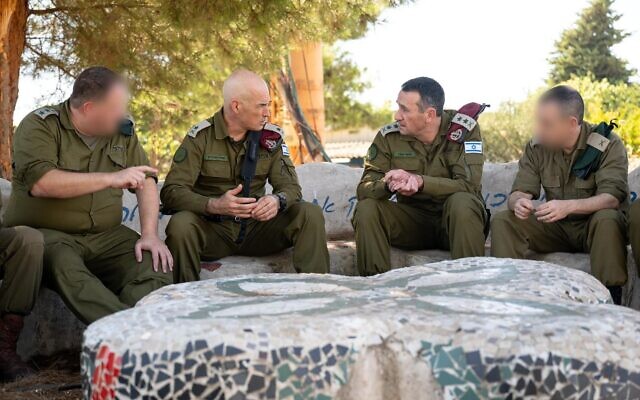
The head of Israel’s Northern Command, General Ori Gordin, said two days ago that the armed forces are bent on altering the security situation on the Lebanese border. “The mission is clear: We are determined to change the security reality as soon as possible. The commitment of the commanders and the troops here is complete, with peak readiness for any task that will be required.”
Gordin has called for an Israeli ground offensive so that a buffer zone can be established in southern Lebanon.
Israel created a security zone there in the late 1970s, but it triggered a costly guerrilla war with Hezbollah. Israel abandoned the enclave when it unilaterally pulled out of southern Lebanon in May 2000.
Twenty four years on, Israel is preparing for what could be its third major invasion of Lebanon since Operation Litani in 1978.
On September 18, the Israeli army announced that it was redeploying its 98th Division to northern Israel after months of operations in Gaza.
On the same day, the Israeli chief of staff, General Herzi Halevi, reviewed contingency plans for a possible full-scale war with Hezbollah. “We are very determined to create the security conditions that will return the residents to their homes with a high level of security,” he said. “We are ready to do all that is required to bring about these things.”
A war of this magnitude would be challenging, as Gallant suggested the other day. Singling out Hezbollah as a more formidable opponent than Hamas, Gallant said, “It’s not Hamas. This is something else. We need to prepare for this accordingly and take it into account.”
He is right.
A full-scale war pitting Israel against Hezbollah would lead to the deaths of many Israelis and Lebanese and cause horrendous damage to towns and cities on both sides of the border.
